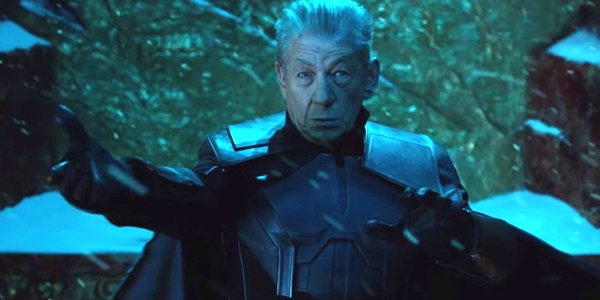Why X-Men Is Way Better Than Superman And James Bond, According To Ian McKellen

While Ian McKellen has experienced a storied, decades-spanning acting career on both film and on stage, it could be argued that it was his role as Magneto in 2000’s original X-Men that truly launched him into the stratosphere with bankable gravitas. An integral part of the watershed comic book property, McKellen recently made some intriguing points regarding where that franchise stands in comparison to seemingly random, but important male movie figures. He might just have a point.
In an interview with Uproxx, McKellen reflects a bit on his long career before assessing the place of the X-Men film franchise, in which he may or may not have already given his final performance in last year’s X-Men: Days of Future Past. That film reunited inaugural director Bryan Singer with the property; a creative force that McKellen credits for providing this mainstream turn. According to McKellen on Singer’s initial vision:
Well, he persuaded me. X-Men was about something. Superman isn’t really about anything. It’s a joke. The nerd changes his underpants and becomes a Superman. That’s James Bond: 'Shaken, not stirred,' silly, stupid, British twit… and then, Action Man! But X-Men is about the problems of being a mutant. And we’ve all felt we’re mutants on occasion. So, that was the hook for me. And don’t forget, I didn’t have to sign to do anymore than one; I’m just doing a movie."
Before X-Men, McKellen’s Shakespearean-centric career left him generally weary of non-traditional projects; a notion he confirmed when he recounted the time he nearly steered his old pal and X-Men co-star, Patrick Stewart down a fatefully divergent path, advising him not to tie himself down in Hollywood with a then-upcoming Star Trek: The Next Generation television gig. However, Singer’s X-Men pitch seems to have been an important step into helping McKellen understand how such properties capture imaginations and even now, he acknowledges the wrongness of his advice to Stewart.
While the comparison to Superman and Bond seems a bit random, it is likely rooted in McKellen’s perspective on masculine archetypes. The clearly resistant pre-X-Men McKellen seemed to need the poignancy of the property illustrated to understand its status as groundbreaking fiction. It seemed to take the vision of Bryan Singer to inveigle McKellen into seeing the dramatic value of fantastical genres in the context of the archetypical comparison to those characters. The idea that the mutants of the mythos were stuck in a world dynamic where the easier option would have been to hide their innate abilities from a fearful/hateful world that fails to understand the phenomena is clearly something that hits close to home for McKellen as a gay man old enough to have experienced a time when similar steps were a necessity.
That fateful edification not only led to McKellen playing the dynamic live-action debut of Eric Lensherr, a.k.a. Magneto in four X-Men features; five if you count the mid-credits cameo in The Wolverine. Plus, we would be remiss if we failed to mention his indelibly legendary six-film run as the sagely ass-kicking wizard, Gandalf in both The Lord of the Rings trilogy, as well as the recently-concluded The Hobbit trilogy. In the meantime, you can catch McKellen’s latest fan-pleasing role as an aged Sherlock Holmes looking to rejuvenate his deductive mojo in Mr. Holmes, seeing as it hits theaters today.
Your Daily Blend of Entertainment News
